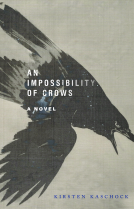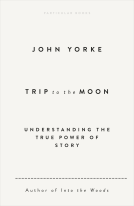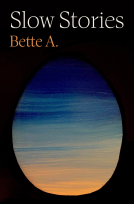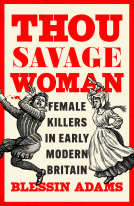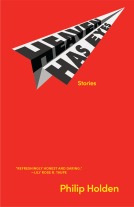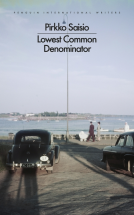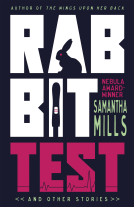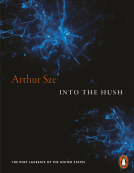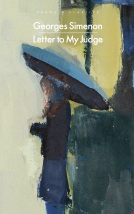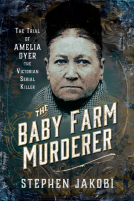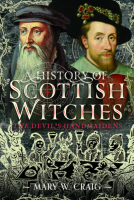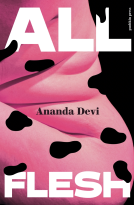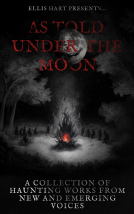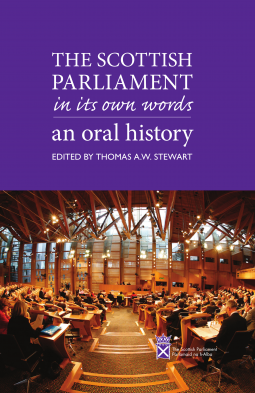
The Scottish Parliament in its Own Words
An Oral History
by Thomas A.W. Stewart
This title was previously available on NetGalley and is now archived.
Send NetGalley books directly to your Kindle or Kindle app
1
To read on a Kindle or Kindle app, please add kindle@netgalley.com as an approved email address to receive files in your Amazon account. Click here for step-by-step instructions.
2
Also find your Kindle email address within your Amazon account, and enter it here.
Pub Date 9 Jul 2019 | Archive Date 31 Aug 2019
Talking about this book? Use #TheScottishParliamentInItsOwnWords #NetGalley. More hashtag tips!
Description
Through its comparatively short life, the Parliament has been tested. What was once an upstart institution, unsure of its place in the world, has now become an ingrained part of the nation's political landscape. Now is an ideal moment to take stock of the Parliament's 20-year history – to investigate its origins, its early days and how it has developed over the past two decades.
As part of the Scottish Parliament Oral History Project, around 80 interviews were conducted with staff, MSPs and journalists, old and new, about their careers and experiences at the Scottish Parliament. This book compiles extracts from some of these interviews, detailing the institution's rich history. This is the story of the Scottish Parliament so far, telling its story through those who know it best.
This was history. Substantial powers were being given to Scotland for the first time since 1707. Henry McLeish, Former First Minister
The Scottish Parliament has been utterly transformative. I don't think our predecessors that voted for this Parliament in 1997 could have envisioned the difference it would make to Scottish public life. Humza Yousaf, MSP
I think there was an element of mutual respect, that women were not patronised in the way that they were in Westminster, and that the issues that affected women were put up front right from the start. Fiona Hyslop, MSP
Available Editions
| EDITION | Paperback |
| ISBN | 9781912147977 |
| PRICE | £9.99 (GBP) |
Links
Average rating from 3 members
Featured Reviews
In 1999, Scotland did something rather extraordinary. For the first time since the eighteenth century, the Scottish Parliament was seated, effectively shifting major political power back to the country and away from the Parliament of the United Kingdom. While initially an unsure legislative body, Scottish Parliament has blossomed in the twenty years since its initial opening, solidifying itself as a significant institution of Scotland.
Oral histories can be hit or miss. Some suffer from reserved subjects and guarded participants while others are brought down from overzealous editors inserting themselves into the narrative. However, when willing, interesting parties come together with a disciplined editor, it can make for a brilliant read. Fortunately, historian Thomas A.W. Stewart, working as part of the Scottish Parliament Oral History Project, falls into the latter category.
As a topic, Scottish Parliament has a couple of major things working for it. After 300 years of doing without, Scotland essentially structured a unicameral legislature from the ground up. It’s a massive undertaking, and the gravity of formulating a workable government — with all of the uncertainty surrounding it — is palpable when reading personal accounts in the opening pages.
And that points to what else makes this oral history so compelling: Scottish Parliament is only twenty years old. It’s just old enough to be firmly on its feet while still young enough to allow Stewart access to individuals who were there at its formation. This allows for a broad range of views, from the beginning Members of Scottish Parliament (MSPs), staff, and journalists, to their more recent counterparts— and all those who cross boundaries.
With such a massive wealth of information, Stewart does deserve praise for whittling these interviews down to an accessible volume. Though not totally comprehensive, it hits on seemingly all major points, from the death of First Minister Donald Dewar to the Rainbow Parliament of 2003 to the dominance of the Scottish National Party in recent years. These moments are expertly propped up by interviews, but Stewart also pushes into more under-explored areas like functioning as both an MSP and a parent as well as the struggle of minority representation among MSPs.
Using a diverse set of voices, Stewart has managed an expert look at an institution with a brief, but rich, history.
A rather accessible oral history from MSPs past and present, weighing in on the parliament's twenty year history. As the introduction notes, the book is definitely not without its biases as many of the testaments are from active party members from across the political spectrum. What I did appreciate that despite the odd loaded comment. particularly towards the end of the book, there was a lack of venom in a number of the criticisms which has become so prevalent within the political landscape these days.
I found the interviews regarding the earlier years of interest, particularly with former independent MSPs relating their short experiences during 'the rainbow parliament' session. The way the book covered Dewar's sudden death and the turmoil it caused did make for a fascinating read.
Worth a look.
With thanks to Netgalley and Luath for the arc.
Readers who liked this book also liked:
Pirkko Saisio
Biographies & Memoirs, General Fiction (Adult), Literary Fiction

